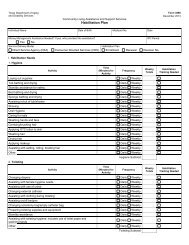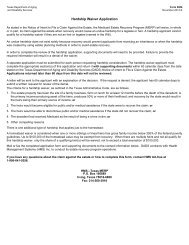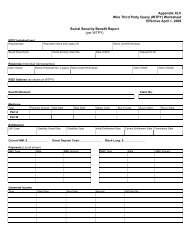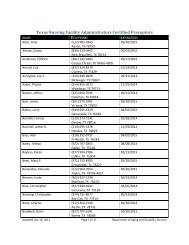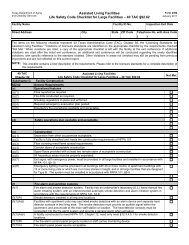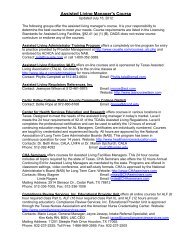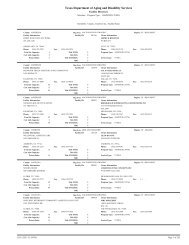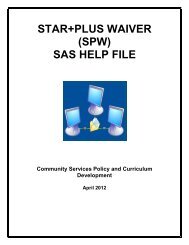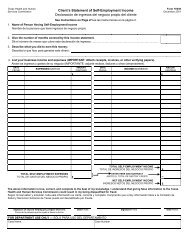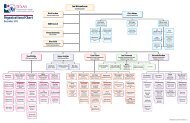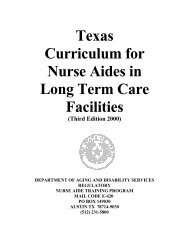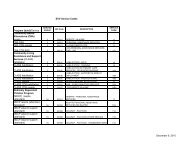Aging and Disability Services Council Sharon Swift Butterworth ...
Aging and Disability Services Council Sharon Swift Butterworth ...
Aging and Disability Services Council Sharon Swift Butterworth ...
You also want an ePaper? Increase the reach of your titles
YUMPU automatically turns print PDFs into web optimized ePapers that Google loves.
equested services will be denied or reduced. The new rules also provide that the current limits<br />
for adaptive aids, dental treatment, minor home modifications, <strong>and</strong> respite remain in place even<br />
if DADS grants an exception to the new, lower service limits. Regarding the requirement to<br />
reduce requisition fees, the amendments eliminate the process by which a CMA obtains<br />
authorization for payment to a DSA of specifications for adaptive aids <strong>and</strong> minor home<br />
modifications <strong>and</strong> also deletes references to a requisition fee for adaptive aids <strong>and</strong> minor home<br />
modifications.<br />
The purpose of the proposed rules is to include the current service limit for transition assistance<br />
services <strong>and</strong> to reflect DADS current practice that any services requested above that limit will be<br />
denied. The proposed rules also clarify DADS current practice of reviewing an individual plan of<br />
care (IPC) to determine if an adaptive aid or minor home modification is requested in accordance<br />
with the requirements in Subchapter F of this chapter, regarding the processes to obtain an<br />
adaptive aid <strong>and</strong> minor home modification. Because the proposed rules eliminate payment for<br />
specifications, the proposed rules restructure the process to obtain an adaptive aid or minor home<br />
modification so that a CMA is no longer required to obtain authorization for payment to the DSA<br />
for specifications.<br />
In addition, the proposed rules enact current policy regarding the provision of respite to an<br />
individual who has a service provider of habilitation, support family services, or continued<br />
family services or has an employee in the consumer directed services (CDS) option of<br />
habilitation. The current policy is set forth, in part, in Information Letter No. 11-17, dated June 8,<br />
2011.<br />
The proposed rules remove nutritional services as a specialized therapy <strong>and</strong> make it a separate<br />
service because nutritional services now has a billing service code that is separate from the<br />
billing service code for the other services that comprise specialized therapies <strong>and</strong> because it is<br />
not subject to a service limit like the other specialized therapy services.<br />
The proposed rules eliminate the requirement that CMA <strong>and</strong> DSA staff persons complete DADS<br />
computer-based training, available on DADS website, <strong>and</strong> instead require that staff complete<br />
training currently described in the CLASS Provider Manual. This change is made because DADS<br />
does not have computer-based training for this purpose.<br />
Further, the proposed rules remove duplicative language, clarify language, <strong>and</strong> update crossreferences<br />
to rule citations.<br />
SECTION-BY-SECTION SUMMARY<br />
The proposed amendment to §45.103 revises the definition of "respite," removes "nutritional<br />
services" from the definition of "specialized therapies" <strong>and</strong> updates a rule citation.<br />
The proposed amendment to §45.104 removes "nutritional services" from the list of services that<br />
comprise specialized therapies <strong>and</strong> lists it as a separate service.<br />
The proposed amendment to §45.212 clarifies that DADS reviews an IPC to determine if an<br />
- 2 -



